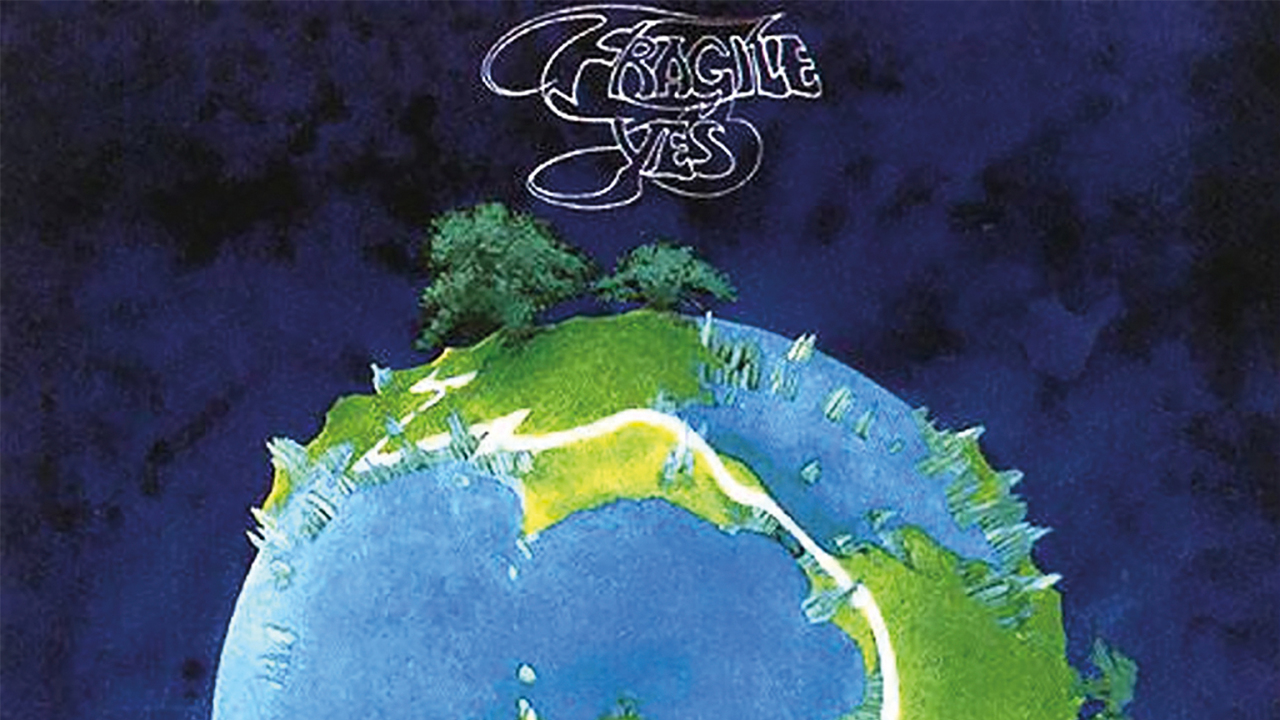“It was like an explosion of energy, dreams and ideas,” Jon Anderson once told Prog, looking back at Fragile. “There was so much harmony within the band. We were getting successful, but it hadn’t gone to our heads. We were all committed to creating adventurous music, and given the freedom to do that.”
Originally released in late 1971 in the UK and early ’72 in the US, the band’s fourth waking dream went Top 10 in both countries and built on the momentum initiated by The Yes Album, elevating Yes from the troposphere to the stratosphere.
Steven Wilson’s aim here is to the take this classic up another level again. His mixes on this expanded, bells-and-whistles edition include a new stereo mix and a hybrid DVD-A featuring a 5.1 surround mix, all approved by the band. You know the drill by now with Wilson’s sumptuous remastering work: his renovations are as glitteringly rich as they are reliable.
Yet what really gets the juices flowing is the news that six unreleased recordings see the light of day for the first time, four of them mixed by Wilson from the multitrack tapes. Totalling around 23 minutes, they provide a fascinating insight into Yes’ creative process at the time. There are two versions of Anderson’s We Have Heaven, a Roundabout rehearsal, an early version of South Side Of The Sky and a different take on Steve Howe’s solo number, Mood For Another Day.
New doors were opened in music and mountains came out of the sky.
And then there’s All Fighters Past, an out-take from the sessions. It sketches a theme that ultimately appeared on Tales From Topographic Oceans’ own The Revealing Science Of God and tosses in a keyboard line that found fruition on Close To The Edge’s Siberian Khatru. All this within two and a half minutes. It would be excessively fanboy to say it’s brilliant – it’s a jaunty jam, an upbeat frolic, Chris Squire’s bass fuzzed out and fanciful – but there’s no doubt it’s an exciting discovery.
Let’s spin back to *Roundabout *and the main album. Eddy Offord’s role as engineer-turned-producer should not be undervalued. The instantly involving, now-iconic, backwards piano fade into guitar harmonics that kick-starts the record was his idea. (As indeed was healthy living and vegetarianism, a regime the musicians tried to obey, with limited success.) Everyone knew they had to up their game, both to capitalise on the buzz of The Yes Album in the States and to stay in contention at what was a heady period for music. The year 1971 had seen important albums from Pink Floyd, Genesis, ELP and Caravan. Prog (as it wasn’t labelled then) was in the ascendant. And nobody was keener on ascension than Anderson, who was urging structural risks (“I was interested in how you get from one idea to the next… and then the next,” he told Prog) and buzzing with the potential he’d heard within Frank Zappa, The Mahavishnu Orchestra, King Crimson and world music.
As for guitarist Steve Howe, he was feeling increasingly at home, and more confident. And Rick Wakeman, brought in to replace the synth-phobic Tony Kaye, was nothing if not game for experiments. It was he who would slot all the ideas together and forge fluidity and sense from them, his orchestration skills described by Bill Bruford as “Rick’s job”.
So Roundabout – edited, much to the band’s chagrin, for a US hit – whirled in with exuberance. South Side Of The Sky is perhaps the most underrated of the big numbers, its riffs gutsy and its dreamy mid-section and return a peak among pinnacles. Long Distance Runaround skitters and charms, and of course monumental finale Heart Of The Sunrise interlaces a blueprint for thrash-rock and a contrasting choirboy purity.
Wilson loves his subject so much he manages to emphasise the crucial elements without sacrificing the occasional how-on-earth-do-they-make-that-work? magical mess that is Yes.
Then there are the solo cameos, studding the album’s starry sky. Anderson sings divinely, Wakeman (contractually blocked from writing credits) reboots Brahms, Howe goes fervent flamenco, Bruford takes a swipe at a former manager and, of course Squire, on The Fish, takes the bass into outer space. With Roger Dean entering and expanding the world of Yes, Fragile was solid flair. New doors were opened in music and mountains came out of the sky. Even in 2015, they refuse to just stand there.

